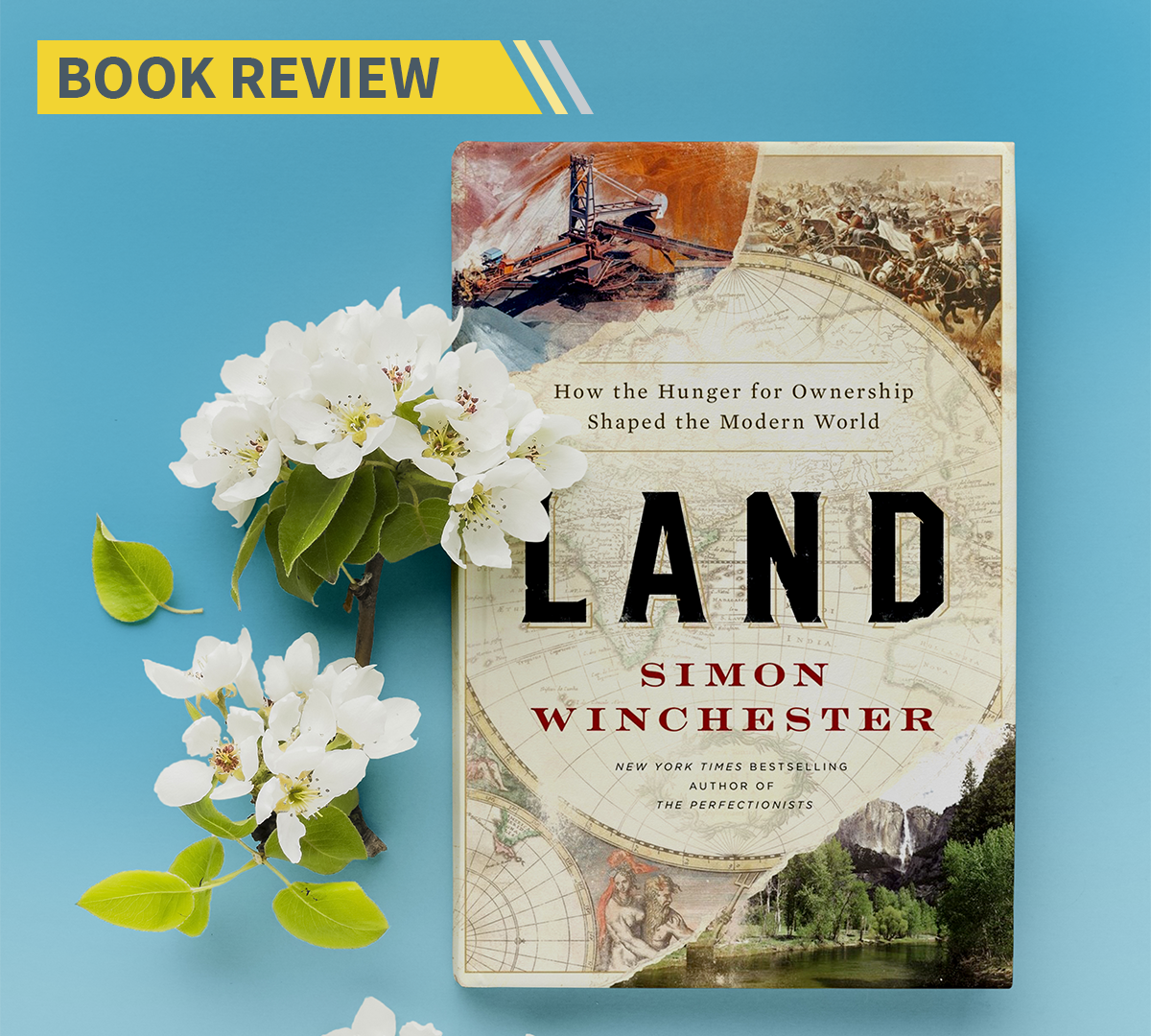 “Land: How the Hunger for Ownership Shaped the Modern World”
“Land: How the Hunger for Ownership Shaped the Modern World”
Author: Simon Winchester
Under all is the land. Upon its wise utilization and widely allocated ownership depend the survival and growth of free institutions and of our civilization.
From the Preamble to NAR’s Code of Ethics
If you’ve ever wondered how land ownership became a pillar of civilization and foundation of the global economy—not to mention bread and butter of the real estate industry—Simon Winchester’s sweeping history transforms this terra incognita into familiar ground. Winchester explores the ancient origins of property and considers how its evolution has shaped life for people across the planet—for better and worse.
Stemming from his own purchase of a 123-acre tract of rugged mountain land in Duchess County, New York, Winchester looks at the profound impact of sectioning off the earth beneath imaginary lines and grids. Born in England and now a naturalized American citizen, he marvels at the privilege of land ownership. His awareness is heightened by the knowledge that generations of his ancestors didn’t own so much as an acre, renting their humble abodes from a complex chain of titled nobles who were in turn beholden to the ultimate British landowners—the Kings and Queens of England1. 
And while he acknowledges the indisputable role of property ownership in building individual and multi-generational wealth, and creating a large and stable middle class, he observes that it has come at a terrible cost of chaos and conquest. Tracing the mass migration that came on the heels of privatizing “millions of acres of once commonly used land,” Winchester follows the scores of displaced farmers and rural dwellers who fled the United Kingdom for North America. Ironically, the resettlement of these dispossessed people displaced many thousands more Native Americans, perpetuating the cycle of suffering.
The subjugation and abuse of indigenous American peoples is another dark passage examined by Winchester. As the government of the newly created United States sought to settle its expansive territories, the prospect of land ownership was opened to all manner of pioneers—provided they weren’t of African or Asian descent. Through treaties and agreements, agents of the U.S. swindled Native Americans of their territories, forced them on to reservations, and systematically dismantled their language and culture. When Native people tried to join the land rush and purchase properties of their own, they were denied because the government did not consider them to be citizens of the United States. In fact, it was not until the 1924 passage of the Snyder Act that members of the nation’s 500 or so surviving tribes were granted U.S. citizenship.
Moving into contemporary times, Winchester shows how the malignant legacy of slavery and enduring racism continue to fuel the racial wealth divide in the United States. He writes: “the disparity between the amount of land owned today by Blacks and by whites—the average Black household holding assets of no more than eight percent of those owned by the median white household, land being a central component of those assets. . . contributes to the country’s racial disharmony.”
In a narrative that spans the breadth of history and the globe, Winchester explores the myriad ways that land has been parceled and used by people and questions the sustainability of how we divide, own, and use the land we all mutually depend on. Ruminating on Tolstoy’s parable of Pakhom, the greedy, devil-driven mogul who can never satisfy his lust for more land, even at the cost of his own life, he asks “how much land does a man need?”
Although there are many answers to that question, Winchester focuses on the words of Chief Sealth, leader of the Suquamish people who once inhabited the land that is now Seattle.
“The earth does not belong to man, man belongs to the earth. All things are connected like the blood that unites us all. Man did not weave the web of life, he is merely a strand in it. Whatever he does to the web, he does to himself.”